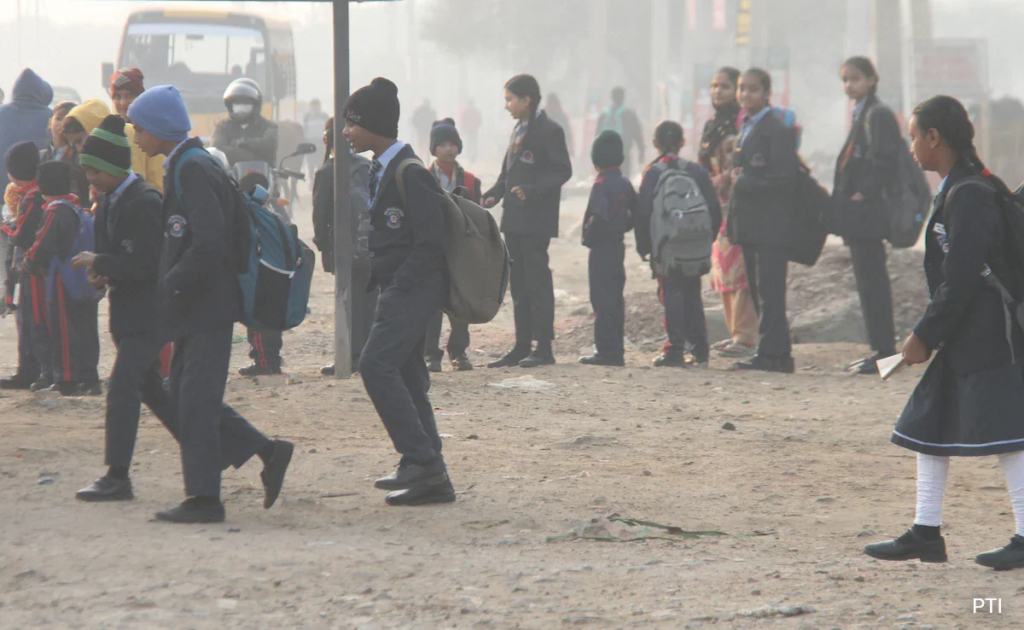Comprehensive Analysis of Delhi’s School Closure and Cold Weather Conditions
Comprehensive Analysis-Introduction:
Comprehensive Analysis-The Delhi government has taken a proactive step by extending the winter break for students from nursery to Class 5 until January 12, citing the prevailing cold weather conditions. This decision, announced by Delhi Minister Atishi on X (formerly Twitter), aims to prioritize the safety and well-being of young learners during the harsh winter season. However, this move has not been without its share of confusion, with a previous order extending the winter break until January 10 being retracted hours later. This article delves into the details surrounding the school closure, the meteorological conditions prompting such measures, and the potential impacts on the educational landscape.

- Atishi’s Announcement and Government’s Decision:
Comprehensive Analysis-Delhi Minister Atishi, in a social media post on X, confirmed the extension of the winter break for nursery to Class 5 students until January 12. She highlighted the need to keep schools closed for an additional five days due to the persisting cold weather conditions in the region. Atishi’s statement serves as a directive for schools in Delhi, emphasizing the importance of prioritizing the safety of young students during this period.
Comprehensive Analysis-The initial decision to extend the winter break had been communicated in a previous order, extending it until January 10 for government-aided and unaided recognized private schools. This decision was attributed to the cold wave affecting the region and the issuance of a ‘yellow alert’ by the India Meteorological Department (IMD). However, the government retracted this order shortly thereafter, leading to a degree of uncertainty among parents and educational institutions.
- Meteorological Conditions and Temperature Departures:
Comprehensive Analysis-The decision to extend the winter break is rooted in the extreme cold weather conditions prevalent not only in Delhi but also in parts of east and northwest Rajasthan, Haryana, and isolated pockets over Punjab. Meteorological data indicates a significant departure from the normal temperature range for this time of the year, raising concerns about the well-being of residents, particularly children.
Comprehensive Analysis-The IMD has forecasted continued cold to severe cold conditions over Delhi, Punjab, Haryana, and Rajasthan, with a subsequent significant decrease. Maximum temperatures recorded at various stations reveal deviations from the normal range, painting a picture of the intensity of the ongoing cold wave. In many parts of Punjab and Haryana, temperatures range between 9-12 degrees Celsius, while north Rajasthan, Delhi, northwest Madhya Pradesh, and some parts of Uttar Pradesh experience temperatures in the 13-16 degree Celsius range. These temperatures are notably below normal by 4-9 degrees Celsius in these areas.
- IMD’s Prediction and Weather Outlook:
Comprehensive Analysis-According to the India Meteorological Department (IMD), northwest and central India are expected to receive a fresh spell of rainfall accompanied by thunderstorms and hailstorms between Monday and Wednesday. This forecast indicates a dynamic shift in weather patterns, potentially bringing relief from the intense cold wave that has gripped the region.
Comprehensive Analysis-The IMD’s predictions serve as crucial information for residents, educational institutions, and authorities to prepare for potential disruptions and take necessary precautions. The anticipated rainfall and associated weather events could have far-reaching effects on the overall weather conditions, offering a reprieve from the extreme cold experienced in recent days.
Conclusion:
The extension of the winter break for students up to Class 5 in Delhi due to cold weather conditions reflects the government’s commitment to ensuring the safety and well-being of young learners. Atishi’s announcement, following a brief period of confusion caused by the retraction of a previous order, underscores the importance of clear and timely communication during such weather-related disruptions.
The meteorological conditions leading to this decision highlight the severity of the cold wave, not only in Delhi but also in neighboring states. The IMD’s predictions of a fresh spell of rainfall and associated weather events bring hope for a change in the prevailing weather patterns, offering relief to residents and educational institutions.
As the region navigates through these challenging weather conditions, it is imperative for stakeholders to stay informed, follow safety guidelines, and adapt to the evolving situation. The collaborative efforts of the government, educational institutions, and the public will play a pivotal role in mitigating the impact of the cold weather and ensuring the well-being of the community, especially the young students affected by the extended winter break.
